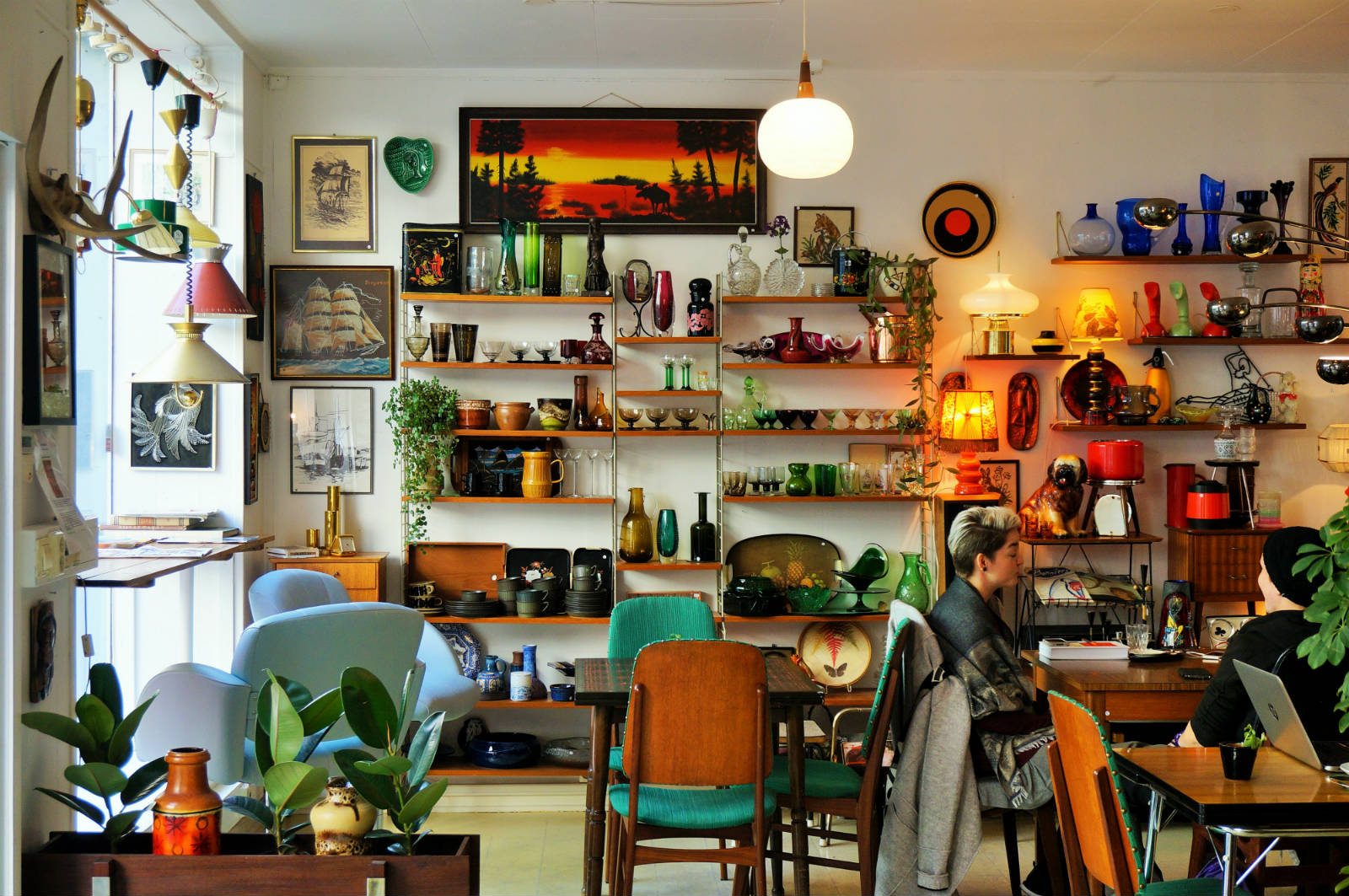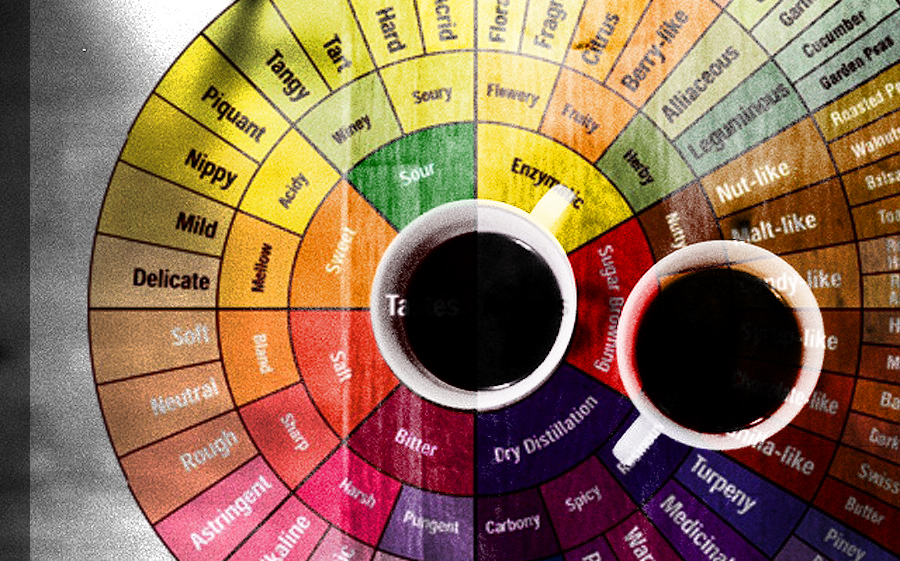Why do Nordic people drink so much coffee? How do Norwegian people drink coffee?

Professional coffee knowledge exchange more coffee bean information please follow the coffee workshop (Wechat official account cafe_style)
In Norway, the average person consumes nearly 10 kilograms of coffee beans a year, and several other Nordic countries are in the top three. A few years ago, it was even more headlined that Uten Kaffe,stopper Norge, literally meaning that there was no coffee, the whole of Norway stopped operating. This is an exaggeration, of course, but it also successfully highlights the importance of coffee in Norwegian society. I have always wondered why Nordic people drink so much coffee.
One day I finally couldn't help it. I went to consult Lord Google. One hit, search for the first item, A history of coffee in Norway, part 1, let me make a brief restatement here!
Some people searched the Norwegian historical archives and found that the word coffee appeared as early as 1694. In the early 18th century, this novel and interesting drink spread in high society. At that time, women from wealthy families did not have to go to work or do housework, so they just gathered together to gossip and exchange information. In the past, chatting was accompanied by wine, and at the end of the day, I was probably terribly drunk, and the emergence of coffee naturally became a new social favorite of the people who left the ground.
In a short period of time, towards the end of the 18th century, Norway has become a large coffee consumer per capita. It is strange that at that time, before oil was found in Norway, most people made a living by logging and fishing, and even the poorest countries in Europe could afford so many rich drinks. It turns out that the most important thing for being poor is to stay with a tycoon. At that time, Norway was regarded as a vassal state of Denmark, indirectly benefiting from the colonial trade preferences. Coffee beans imported from Copenhagen are duty-free and much cheaper than other European countries, and have gradually become a daily drink affordable to ordinary people.
But it's not always plain sailing to be at the top. At that time, the Danish emperor, who thought the folkways were too luxurious and bad, issued an injunction restricting the use of luxury goods in 1783, which actually included a ban on drinking coffee. The restrictions were actually so disturbing that they were quickly overturned in 1799. At first, the church was firmly opposed to coffee as a drink, but the general trend of the times made it difficult to stand on the opposite side of the public. The world is unpredictable. Twenty years later, the church has become a helper in the promotion of coffee, all because they have encountered a drink that is more evil than coffee.
After Norway seceded from Denmark in 1816, a law was passed that all landowners had the right to use their crops to make spirits of high concentration. As soon as this example is opened, a large number of spirits emerge, and many people High from morning till night. I don't know who came up with the trick of "holding coffee against spirits", but the consumption of spirits is still on the rise. With all the publicity, coffee consumption has increased tenfold in 50 years.
During World War II, supplies were poor, various kinds of daily necessities were rationed, and the amount of coffee declined year after year because of the shortage of money. A businessman gathered the strength of many families to sign an agreement with Brazil without spending a penny to trade salted fish for coffee, hanging the Norwegian's addiction to coffee. Even after the war, the government provided a high amount of aid for trade to the somewhat empty treasury because coffee was too important. The coffee bought in Norway is so exaggerated that it is cheaper than that bought in Brazil.
It turns out that for more than 300 years, under the influence of the political and economic environment, coffee has been integrated into the blood of Norwegian people and become an indispensable part of life.
END
Important Notice :
前街咖啡 FrontStreet Coffee has moved to new addredd:
FrontStreet Coffee Address: 315,Donghua East Road,GuangZhou
Tel:020 38364473
- Prev

Why is my coffee astringent? Huh? Coffee is also divided into "good" astringent, "bad" astringent?
Professional coffee knowledge exchange more coffee bean information Please follow the coffee workshop (Wechat official account cafe_style) I believe that when people choose coffee beans, the taste description written on the label will also be one of the reasons why you decide whether to buy or not. But I do not know if you have ever encountered such a situation: obviously the taste description says smooth caramel flavor, but taste
- Next

In what ways do you describe the coffee you drink coffee tasting coffee sensory description
Professional coffee knowledge exchange more coffee bean information please pay attention to the coffee workshop (Wechat official account cafe_style) coffee mellow, coffee aroma overflowing, coffee slightly bitter, released from the mouth, that special breath. These are the only adjectives for all kinds of tastes. 1. Flavor: the aroma, acidity and mellowness of a cup of coffee
Related
- How did the Salvadoran coffee industry develop in Central America?
- What exactly does the golden cup extraction of coffee mean?
- The Origin of Coffee flower
- [2023 Starbucks World Earth Day] there are more meaningful things besides free Starbucks coffee!
- What kind of coffee is there in Spain? 9 Flavors of Spanish Coffee
- Aromatic African coffee| Kenya's coffee culture and historical production area
- Liberica Coffee Bean knowledge: the characteristics of Liberian Coffee beans of the three original species of Coffee beans
- The origin and formula of Spanish latte introduces the taste characteristics of Bombon coffee in Valencia, Spain.
- How to adjust the solution of over-extracted coffee
- What is the tasting period of coffee beans? What is the period of coffee and beans? How should coffee wake up and raise beans?

